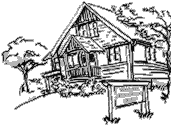Becoming a Beloved Community – Carolyn Vandendolder
Carolyn Vandendolder was the scheduled speaker at semi-programmed meeting for worship on May 1, 2016.
As often happens when I wrestle with something, I end up in an old place – familiar but different; refreshed.
Our family got a dog not quite a year ago. I speak of him often. Our relationship is new and we’re still on a learning curve.
I spend about an hour and a half walking him most days. When I’m home, I hang out near him. I’m pretty confident I know his play growl from him guarding growl. But he still surprises me. He once or twice has lunged at passers-by with no seeming provocation or warning. His patience can run out when he is tired and being teased. He can come to me, clearly wanting something, and I can’t always figure it out. I spend hours with this dog most days and I still make mistakes with him.
My husband, Rick, and I have been married almost 29 years. We’ve had children together, bought and sold houses together, weathered disappointments and grieved and celebrated together. But we can still find ourselves misunderstanding each other and hurting each other. After 29 years of marriage, we still make mistakes with each other.
I’ve been thinking a lot about what a beloved community looks like – what it might feel like – how we can get to that place of mutual support, respect, encouragement, love. And I have felt pretty discouraged. When we see each other only an hour or so once a week, how can we hope to know and understand each other? Do I have the time and energy to deal with feelings of impatience, hurt, of being discounted, taken for granted, neglected, misunderstood? Do I have or take the time to do the internal work of exploring these feelings? Do I have the kind of relationships that allow me to work through these feelings constructively with others? Or do I try to ignore irritation and impatience or go away for a while when I feel hurt?
I have always admired the simplicity and directness of traditional Quaker marriage vows. And there’s a phrase in them that remains a challenge and comfort to me in my marriage, “promising, with divine assistance, to be a loving and faithful wife.” Relying on divine assistance is what this community, here, tries to do, even if I haven’t before understood it in quite those terms. We don’t have to have perfect knowledge or understanding of each other in order to minister to, support, and challenge each other. Loving each other isn’t a state of being, but a decision with each interaction. Being a beloved community is not a place of arrival but an exploration.
I have such gratitude and admiration for those here at Meeting who have labored through misunderstandings and hurts and neglects. I am / we are still learning how to love each other authentically. I am reminded of a telephone conversation I had a few months ago with someone asking about Quakerism. After speaking at length about both the gifts and challenges of being part of a Quaker community, I said that I feel really fortunate to be knit together with people here; that the people I find here are trying to live intentionally and earnestly. I am reassured and encouraged when I feel the truth of that statement. We seek divine assistance in our lives and in our life together.
I, individually, and we, collectively, with the very best of intentions, will continue to make mistakes with each other. We will continue to experience misunderstanding and hurt. I trust that, with divine assistance, we will be able to work through them. I trust that, with divine assistance, we are, and are still becoming, that beloved community.
